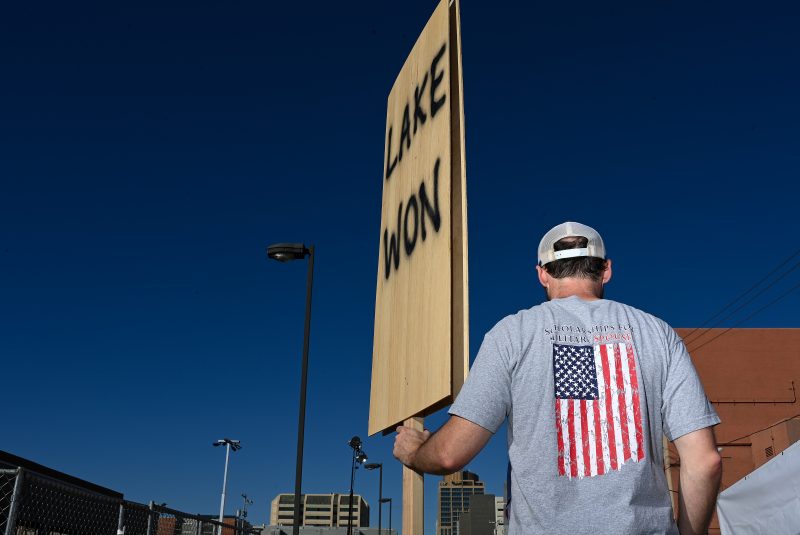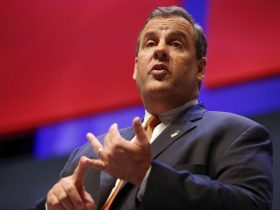When the new Arizona attorney general took office last month, she repurposed a unit once exclusively devoted to rooting out election fraud to focus on voting rights and ballot access.
In North Carolina on Tuesday, the State Board of Elections began proceedings that could end with the removal of a county election officer who had refused to certify the 2022 results even as he acknowledged the lack of evidence of irregularities.
And later this week, a group of secretaries of state will showcase a “Democracy Playbook” that includes stronger protections for election workers and penalties for those who spread misinformation.
These actions and others reflect a growing effort among state election officials, lawmakers and private-sector advocates — most of them Democrats — to push back against the wave of misinformation and mistrust of elections that sprang from former president Donald Trump’s false claim that his 2020 defeat was rigged.
Since that vote more than two years ago, election administrators have regularly found themselves fending off false accusations, baseless lawsuits and violent threats. They have fielded demands that go beyond their official powers — to stop using electronic voting equipment, to hand-count all ballots, to end mail voting or to refuse to certify results. Hundreds have resigned or retired as a result of the pressure and abuse, with some states, including Colorado, reporting that a majority of their county election clerks have turned over since 2018.
Election administrators and their advocates say they are motivated to take action because election denialism does not appear to be going away, even as the evidence has grown — in public polling as well as in the midterm election results — that most Americans have grown tired of it.
Many of those pushing for change are Democrats emboldened by their victories against Republican election deniers in last year’s elections — yet still concerned that false fraud claims continue to dominate within GOP ranks. The unofficial start of the 2024 campaign adds to their urgency, with only a limited window to make changes before the next election cycle begins in earnest.
“We want to protect the people who protect democracy,” said Michigan Secretary of State Jocelyn Benson (D), who is working with state lawmakers in Lansing to toughen penalties for threatening election officials or releasing private information about them. Benson is also drafting legislation that would make it a crime to knowingly spread misinformation about elections. Later this week, at a conference of secretaries of state in Washington, she and her counterparts from Minnesota and Arizona will promote those ideas among officials from other states.
“Clearly the laws on the books are not serving as a sufficient deterrent,” Benson said in an interview.
Benson was one of several statewide candidates in key battlegrounds who handily defeated election-denying nominees in November’s midterm elections. She is working with a legislature that flipped to the Democrats, improving prospects for her proposals.
Arizona Attorney General Kris Mayes (D) would have a harder time ushering such laws through her state’s GOP-controlled legislature. But she did seize on an opportunity for internal reforms after replacing Republican Mark Brnovich, who commissioned an investigation into unproven claims of widespread fraud after the 2020 election. As part of that probe, the office’s election-fraud unit sought evidence from a group known for spreading misinformation.
Mayes is now retooling that internal unit to fight threats against election officials and the intimidation of voters, she told The Washington Post in a recent interview. The unit will continue to investigate instances of election fraud, which she said number about half a dozen each cycle in Arizona, far fewer than Trump and his allies have claimed.
“We’re going to be going back to a time when the attorney general’s office didn’t waste taxpayer dollars on chasing conspiracy theories,” Mayes said. “We’re facing a new world in which elections officials are experiencing death threats, in which voters are being intimidated by people showing up at the ballot box, at voting centers, wearing body armor and carrying guns, and in which the Republican Party is trying to undermine vote-by-mail. Those are all things that I think this unit can and should now be focused on.”
Mayes said she has also talked to the Maricopa County sheriff about collaborating to protect polling places and election workers from threats after bands of activists, inspired by Trump’s false claims of widespread fraud, staked out drop boxes in 2022 to photograph and record voters dropping off ballots. She is one of several state law enforcement leaders nationally — Michigan Attorney General Dana Nessel (D) is another — who have opened investigations into the Trump campaign’s recruitment of alternate electors in the fall of 2020 to try to overturn Joe Biden’s victory.
“There has to be a deterrent to this happening again,” Mayes said.
Advocates say more pushback is crucial because so many leading election deniers appear undaunted by their defeats in November. Arizona’s Kari Lake, despite losing the governor’s race last year with a campaign message focused heavily on false claims of election fraud, is considering a bid for the U.S. Senate next year. In two political speeches in Iowa last week, Lake continued to full-throatedly embrace those claims.
In Michigan later this week, leading election denier Matthew DePerno, who lost his bid for state attorney general last year in a landslide, is running for state GOP chairman — with Trump’s endorsement. “No one is more courageous as a defender of election integrity,” Trump told DePerno supporters at a tele-rally this week. “The fake news likes to say, ‘Oh, the election, you have to look forward, not past.’ No.”
Even instances in which election deniers have become violent have failed to check the rhetoric. In New Mexico, a state legislative candidate and fervent proponent of baseless election fraud allegations who lost his own race by more than 50 points was charged with orchestrating shooting attacks at the homes of four Albuquerque Democrats who refused to entertain his demands that his defeat be reversed. After the shootings, Republicans downplayed the idea that stolen-election rhetoric had helped instigate the violence.
The heightened pushback has not come only from public officials. In North Carolina, the State Board of Elections began considering removal of a local election board member after he refused to certify the November 2022 results. The proceeding originated with a complaint from the longtime leader of government watchdog Democracy North Carolina.
Bob Hall sought the removal of two members of the Surry County Board of Elections who together wrote a letter questioning the legitimacy of state election law. One of them, Jerry Forestieri, also refused to join other board members in signing the county’s official results — an act the complaint said amounted to a violation of his oath of office. Forestieri did not cite fraud or irregularities in Surry County but rather his view that a court decision striking down the state’s voter ID law has enabled fraud and undercut confidence in the process.
Trump won rural Surry County in 2020 with more than 75 percent of the vote. Forestieri could not be reached for comment.
The new pushback campaign includes an effort to combat the misinformation that some officials say is at the root of the mistrust and threats.
In Wisconsin, the state’s bipartisan elections commission last year started applying sanctions for what it deemed to be frivolous complaints. In one instance, the commission levied $2,400 in fines against a man who has made a series of false accusations against election officials.
Ann Jacobs, a Democrat who sits on the commission, said she and her colleagues were willing to consider complaints from the public, even ones that sounded far-fetched. But when the volume of complaints grew, many of them from the same individuals and replete with misinformation, the commission concluded that they were being filed in bad faith.
“In those situations — and it’s just been a handful — it was to send a message to the serial offenders that that sort of abuse of process isn’t going to be tolerated,” Jacobs said.
Benson, Michigan’s secretary of state, acknowledged in an interview that penalties for those who spread false election claims could run counter to First Amendment protections. But she compared the legislation she is working on to laws barring deceptive marketing practices.
“Individuals who intentionally spread misinformation that then leads to threats or worse targeting election officials are just as culpable and should be held culpable just as those who are actually exercising the threats themselves,” she said.
Michael Siegrist (D), the township clerk in Canton, Mich., said beleaguered election officials want to see action against those spreading lies.
“Someone’s going to have to bring some charges against some folks,” he said. “This notion of, ‘I’m going to come in and try to re-litigate an election afterwards in the court of public opinion,’ especially if it relates to a scheme to overturn the validity of an election — that stuff just needs to have consequences.”
Isaac Arnsdorf contributed to this report.








